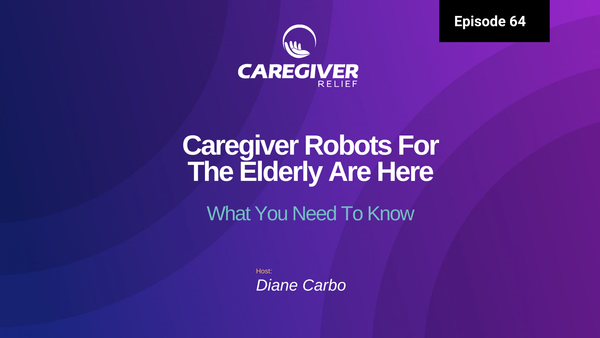How To Become a Caregiver for a Family Member
Caregiving responsibilities is a role with no prerequisites other than a willingness to help. If you're reading this article, you're probably already taking care of someone with a chronic condition, disability, or that is otherwise unable to care for themselves independently.
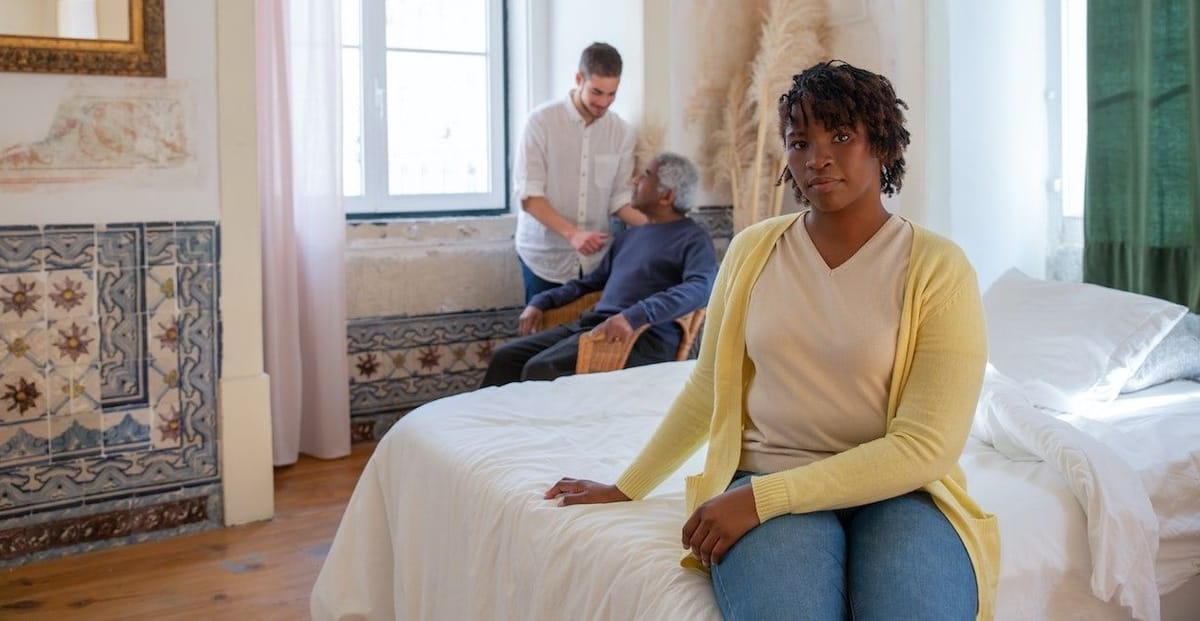
Are you thinking about becoming a caregiver, but don't know where to begin? Don't worry! Let's start by getting familiar with the types of senior care, the necessary skills, and the potential earnings for each role. Becoming a caregiver is a selfless act of love and duty, but it also comes with many responsibilities and questions. But don't fret. We've got you covered!
So, how do you know if you're a caregiver? For some of you, you may already be helping an aging family member, someone with a complex medical condition, or a friend with disabilities, as a family caregiver, you're already making a huge impact!
If you are a family caregiver, you may have been thrown in your role. In this lesson, I am going to go through the different types of caregivers, both paid and unpaid. I will explain what the expected salary may be, or if you are a family caregiver, how you may get paid.
As a caregiver, you're responsible for providing love, support, and dignity to the person you're caring for. However, being a caregiver can also be overwhelming with so many tasks to juggle. We'll take you through the steps you need to get started and keep going, including financial help and legal support. And don't forget, you don't have to do it alone! At caregiver relief we will be available to provide support for the family caregiver, help maneuver the medical delivery system, provide caregiving coaching, care management and lots of courses and podcasts on topics to meet your needs.
What does a Caregiver actually do?

Caregiving responsibilities is a role with no prerequisites other than a willingness to help. If you're reading this article, you're probably already taking care of someone with a chronic condition, disability, or that is otherwise unable to care for themselves independently. Or if you are a person thinking of being a caregiver or a direct care worker, this lesson will give you information on the different types of settings caregivers provide support and services.
Please feel free to visit www.caregiverrelief.com We have organized resources into : care support, finances, legal, health, and alternative care settings. We'll provide you with all the necessary information and support you need to succeed as a caregiver.
The Family Caregiver
Most family caregivers do not identify as a caregiver Many start as informal caregivers, as they do things for their family members or friends. Whether you offer full or part-time help or support to older adults, of disabled individuals , there's an array of daily tasks and responsibilities that come with it. While caregiving looks different for everyone, there are certain things that most caregivers can expect to do, such as shopping for groceries, visiting regularly, organizing and paying bills, managing medical needs, and more.
To be the best caregiver you can be, there are a few things to keep in mind. First, embrace the role of family caregiving wholeheartedly. Labels matter, and when you tell people that you're a caregiver, it lets them know that you have additional responsibilities and needs. It's a lifestyle change, but shifting your mindset to see yourself as a caregiver, rather than just a helper, can help you validate the extra responsibilities you have.
View Your Role As Any Other Job
As much as you dislike what I am going to say, after years of working with family caregivers, I encourage you to look at this role as you would any other job . Yes, I said a job. Caring for another is challenging. It the the most guilt producing role you will ever take on. It is a role that most are unprepared for the challenges you will face. The average caregiving journey lasts as long as 6 to 8 years. It can last as long as 20 years. The statistics for the family caregiver are very grim. The chronic stress and burden of caring for another causes 63% of family caregivers develop a serious illness or dies before the person they are caring for does.
We have a public health crisis
We have a public health crisis in this country. Of fact it is a global problem. We have more seniors than youth. According to the census bureau, the oldest of the baby boomers will turn 80 in 2030. THe youngest of the boomers will start to retire in 2025. The family caregiver is the single largest pillar of the long term care industry. There are very few supportive services for family caregivers. Respite care services are very limited or nonexistent.
Respite care is necessary for a family caregiver's emotional and physical well being, to be able to provide care for another. A family caregiver should look at respite, or a break as a priority on a regular basis. I have created a New to Caregiving Course and a How to be a Patient Care Advocate course for family caregivers, as well as for those that want to become direct care workers.
Ways to get paid to care for a family member

I'm going to briefly touch on different ways to get paid as a family caregiver. I suggest you listen to my How to get paid as a family caregiver audio cast for more additional information.
There resources to get paid for as a family caregiver may be through a family caregiver contract, veterans resources, long term care insurance ( if your family member has a policy). Medicaid waiver programs
Embrace technology

Whether you are a family caregiver or aspire to be a professional caregiver, you should embrace technology. While it's not a substitute for human interaction, technology can be a helpful tool in your caregiving toolkit. Consider using Caregiver Relief's online care management program. Our system gives you a centralized place to manage your loved one's care with another family, friends and care team members. Our system helps everyone stay on the same page because you can automatically send text messages and emails to the entire group when there is an update. No more phone tag or email chains!
We have a community calendar to keep all of the appointments in one place so everyone knows what is happening and when. This is great when you need to ask for help and support to just post a request to your team, put it on the calendar for all to see. This is a great tool to use to encourage accountability. There are endless possibilities with managing medications and having access to patient portals..
You will be able to secure and store all of the medical and legal documents in our system, so you always have them at your fingertips, whether it's for an emergency or a routine medical question.
Overall, to make your caregiving journey as smooth as possible, remember to simplify your routine and plan for the unexpected. With a little preparation and the right mindset, and our support, you can be the best caregiver possible!
Let's talk about becoming a senior caregiver
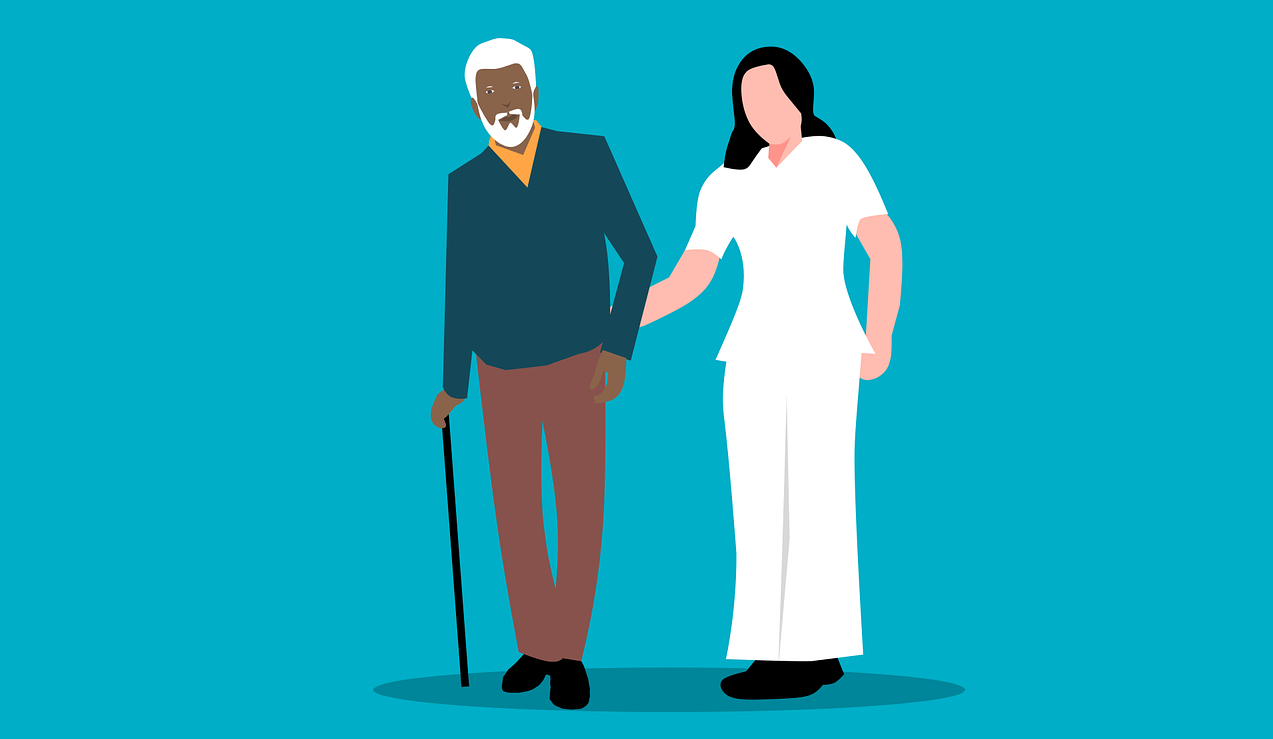
If you're passionate about helping older people, there are so many amazing roles within the caregiving space to dive into! Whether you're a seasoned pro looking to make a meaningful career transition or a newbie eager to explore possibilities, understanding the different types of senior care is key. Here's everything you need to know!
First off, what exactly is a senior caregiver? Simply put, these are the everyday superheroes who provide various types of physical, mental or emotional care services to older adults in need. Whether support and care takes place within your local community in the aging senior's home, at a skilled nursing or rehab center, or in an assisted living setting, caregivers are there to lend a helping hand to improve the lives of others.
Now, it's important to note that senior caregivers or direct care worker roles typically fall into one of two main categories: non-medical and skilled caregiving. What’s the key difference between them, you ask? Essentially, it comes down to the type of care and services provided are involved. There are plenty of exciting career paths in both! So, let’s take a closer look to help you decide which might be right for you.
I would first like to tell you, these positions are so badly needed. There is so much data that shows assistance of quality services in this country by direct care workers will need over 1 million direct care workers in the next 10 years. Supporting the family caregiver in the role as a direct care worker, can be challenging and very rewarding. As a direct care worker, you will be a valuable resource that will provide a better quality of life for many families, grandparents, and even children, if that is a type of care you would prefer to provide.
Let's talk about non medical care
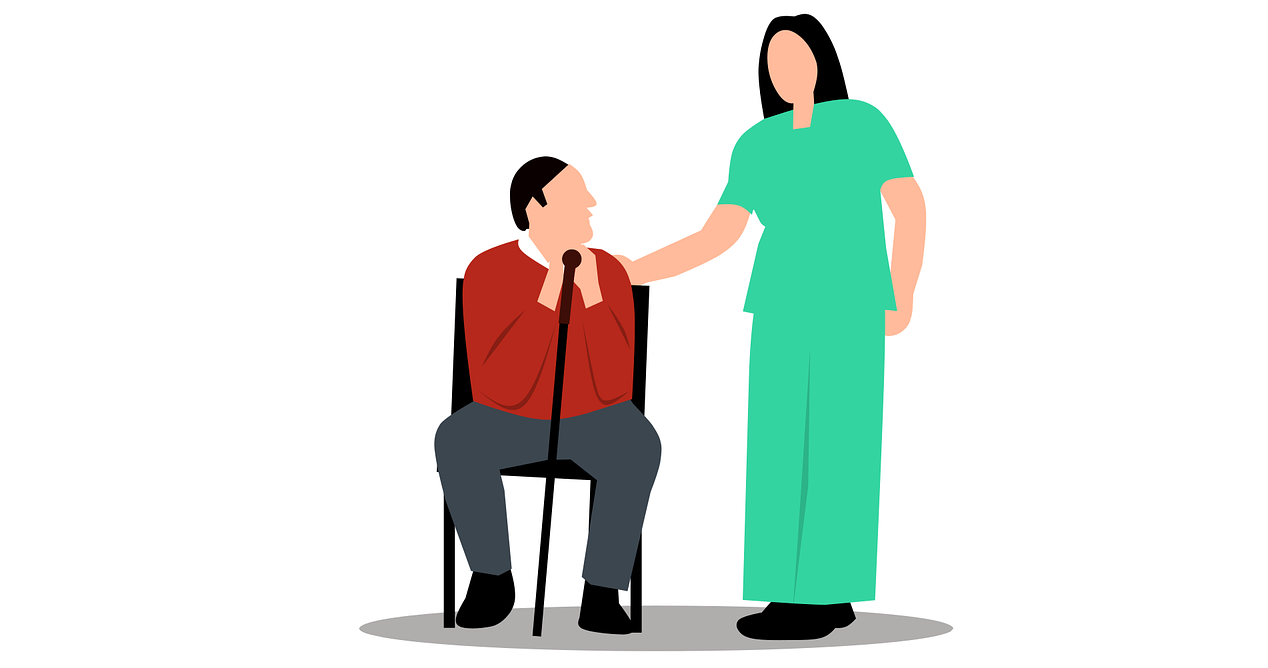
Have you ever wondered what a non-medical caregiver does exactly? Non-medical caregivers assist senior individuals with practical assistance such as daily tasks and activities. From meal preparation to reminding seniors to take their medications, non-medical caregivers are available to offer an extra helping hand.
But, did you know there are different types of non-medical caregiving roles? For instance, companion caregivers primarily provide hands-off care and help with tasks that don't involve physical assistance.
Personal Caregivers
Personal caregivers, on the other hand, provide help with mobility issues and even offer assistance with feeding and bathing. Both roles can be part-time and require a certification course and training hours. If you're thinking of pursuing caregiving, it's good to know that on average, these caregivers can expect an hourly rate of slightly over $15 in 2023.
Non medical caregivers
Non-medical caregivers in our country earn an estimated total pay of $35,847 per year, with an average salary of $33,812 per year? That's based on salaries collected from national alliance organization . These numbers represents the average- the midpoint of the ranges. Some states will pay more and some less. Your location will dictate your earning power.
I am expecting these salaries to increase significantly as the present public health crisis grows. The aging population will demand it. The services of this type of caregiving will improve the quality of life for the family caregiver by providing respite or a break from their caregiving responsibilities. Your support from you and your organization will help older adults remain in the community and in their homes to age in place. Users of your service organizations and programs offered will improve the quality of life for everyone.
Assisted Living Caregivers
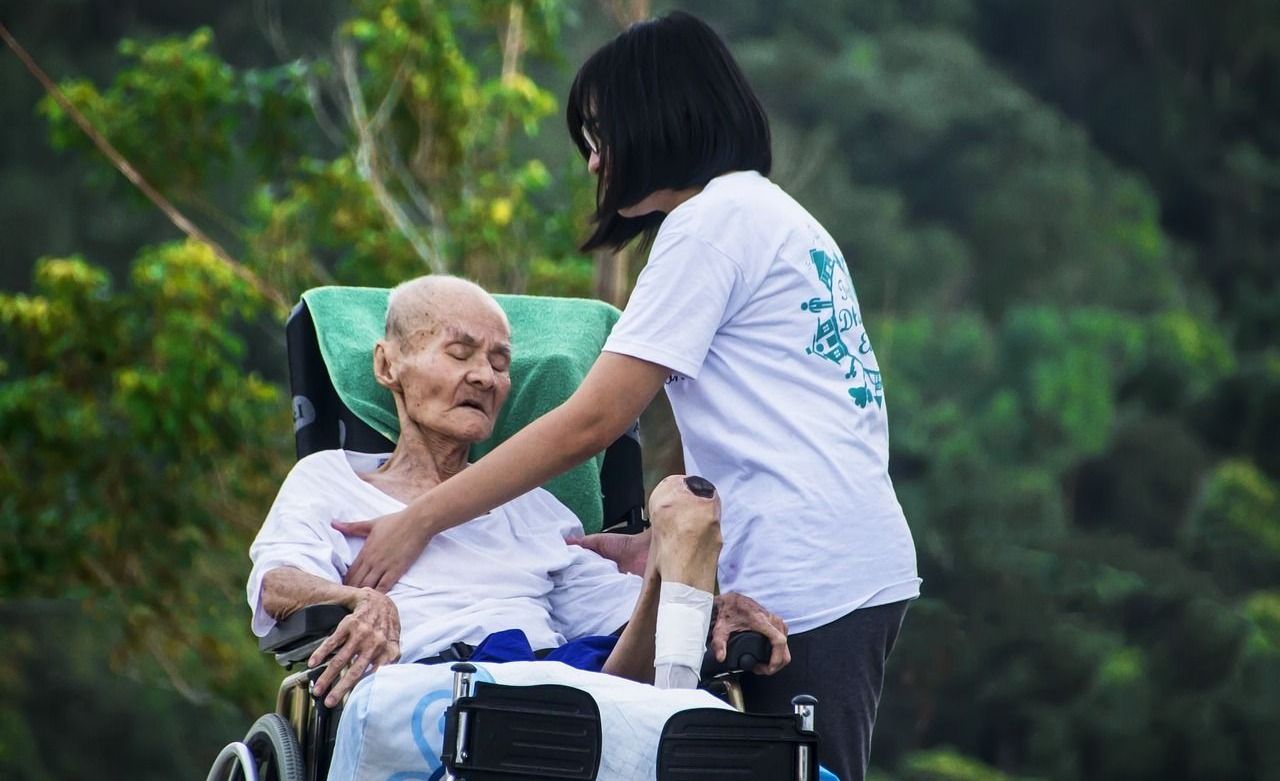
Assisted living caregivers can help seniors live better lives, and you might be surprised by how easy it is to get started. If you're a nurturing person who enjoys working as part of a team, working at an assisted living facility could be your calling. It's even okay if you don't have formal experience - frequently, those who have cared for family members discover that they have a passion for caregiving that they want to pursue.
As an assisted living caregiver, you would work together with a team of caregivers to assist seniors with everything from mobility needs to group activities. If you are employed, your organization should provide the necessary training on-the-job or as part of the onboarding process in many states. The hourly salary range for assisted living caregivers is between $13-$15, and can fluctuate depending on a range of factors like education, certifications, additional skills, location and experience. If you are searching for exact pay information, check out the most recent Genworth long term care report they put out yearly. This organization sells long term care insurance and has the most extensive data collection of the rates of all different types of services, programs according to your specific location and community.
According to the Family Caregiver alliance and National Alliance skilled caregivers are experts who have received training and certifications, allowing them to provide hands-on care and support for seniors in an alternative care setting such as a nursing home. This involves various responsibilities like helping seniors with mobility issues to bathe, dress and take their medicines on time, as well as monitoring vital signs.
Certified Nursing Assistant

Different types of skilled senior caregivers are out there, including Certified Nursing Assistants (CNA). Working closely with a registered nurse (RN) or licensed practical nurse (LPN), the duties of CNAs are more hands-on.
From monitoring food and liquid intake, to helping seniors use the restroom and recording vital signs, CNAs can perform many tasks to provide hands on care for seniors. If you're looking to add a more personal touch to caregiving, becoming a CNA can be a rewarding career for you. You can become a CNA for a variety of different age groups from children to support their parents or to providing caregiving duties to older adults and those with disabilities .
But to start as a CNA, formal training through a school or skilled nursing program is necessary, which varies by location or state. After the training is completed, there is a state test. The applicants get certified only if they meet all the requirements,CNAs are required to continue their education to maintain certification status. According to the latest data from the national alliance of caregivers 2023, the average pay for Skilled Nursing Facility - Certified Nurse Assistants(CNAs) is $34,400. However, this amount varies depending on relevant factors such as education, certifications, additional skills, and years of experience. Again, I refer you to look at the most recent year of the long term care report created by Genworth for the most up to date data on salaries in your location and community . They have the salaries broken down according to programs and resources in alternative care settings.
Now lets focus on Certified Home Health care aides
Becoming a certified Home Health Aide (HHA) is a fantastic way to help seniors age comfortably in their own homes. Not everyone needs a Certified Nursing Assistant (CNA), and with HHA training, you can still perform a wide variety of hands-on tasks.
During HHA training, you'll learn to provide proper bathing care for seniors with mobility issues, as well as administer mouth hygiene and basic medical care. You'll be able to help with housekeeping tasks, prepare meals, and of course, provide companionship and emotional support.
The amazing part is you can get this training through community colleges, hospitals, and even the National Association of Home Care and Hospice (NAHC). After becoming certified, you can earn around, and these are 2023 rates, $36,000 per year, with an average hourly rate of $15.59 in the US, and an additional $4,000 overtime pay each year.
Again, always look into the most recently published Genworth long term care report Being a direct care worker can be a fulfilling career where you're making a real difference!
Mental health technician

Now let's talk about becoming a mental health technician, or a psychiatric or behavioral health technician or aid. a growing caregiver role. Mental Health Technicians, commonly referred to as Psychiatric Technicians or Behavioral Health Technicians, are the unsung heroes of a mental health treatment team. They work directly with patients who are dealing with mental health issues, disabilities, illnesses, or substance abuse problems. They are an integral part of a dynamic team which includes physicians, psychiatrists, social workers, and counselors.
But how can you become a Mental Health Technician? Well, the educational requirements vary, meaning no matter your current skill level and ambitions, there are opportunities available for you to join these mental health superheroes!
Let's explore what Mental Health Technicians do and the different levels of certification required to join the field. This is a role that is evolving. It is a role that you can literally start out with a high school education or GED, and take a career path for advancement in this rewarding career.
A career as a mental health tech may not require advanced degrees or certification, yet the work is invaluable and demands a unique set of skills. You may find yourself working in a residential facility, nursing home, memory care unit or school. But wherever you end up, it's important to bring your best self, including patience, compassion, and good listening skills to your role. These qualities are essential when you meet people with different needs and potential mental health diagnoses on a daily basis.
The average salary for a mental health tech is $37,638, although it can vary based on education and years of experience.
Mental health aide

If you're looking for a more direct role in patient care, you may want to consider becoming a mental health aide instead. Ultimately, be prepared for a rewarding, yet challenging career that requires flexibility and adaptability, as many facilities operate around the clock. Are you curious about what a mental health aide is? A mental health aide, sometimes referred to as a psychiatric aide, plays a vital role in specialized care facilities, nursing homes, and hospitals. They assist with the daily routine of individuals who suffer from mental illnesses or emotional impairments. From providing physical support to offering emotional help, a mental health aide is involved in various aspects of patient care.
Under the supervision of psychiatrists, psychiatric technicians, or nurses, a mental health aide also helps with medical care, housekeeping duties, and recreational group activities. The job comes with exposure to physical harm or danger, so a mental health aide must be trained to handle stressful situations and calm patients when the need arises.
Above all, a mental health aide needs to be patient, empathetic, friendly, and caring toward patients. They also need to have a deep understanding of how to communicate with mentally ill individuals.
To become a mental health aide, one must have at least a high school diploma or GED and complete on-the-job training to prove that they are well-suited for this line of work. Now you know what it takes to be a mental health aide!
If you are interested in advancing in the field, a four-year degree in a behavioral health subject can help you find more employment opportunities and higher pay, as you move up the career ladder.
While earning potential will vary depending on variables such as geographic location, employment sector, and years of experience, the statistics suggest that the average annual wage for mental health technicians is $38,000 per year as of 2023.
Are you sitting on the fence about choosing a caregiving role that is right for you ? Why not test the waters first? Volunteer with AmeriCorps , a church group providing a ministry to support the family caregiver to remain in age in place, this provides an ideal way to help others in need and , make a tangible difference in your community and perhaps discover your true calling. With your desire to help, it's worth considering volunteering to find the perfect caregiving match for you.




